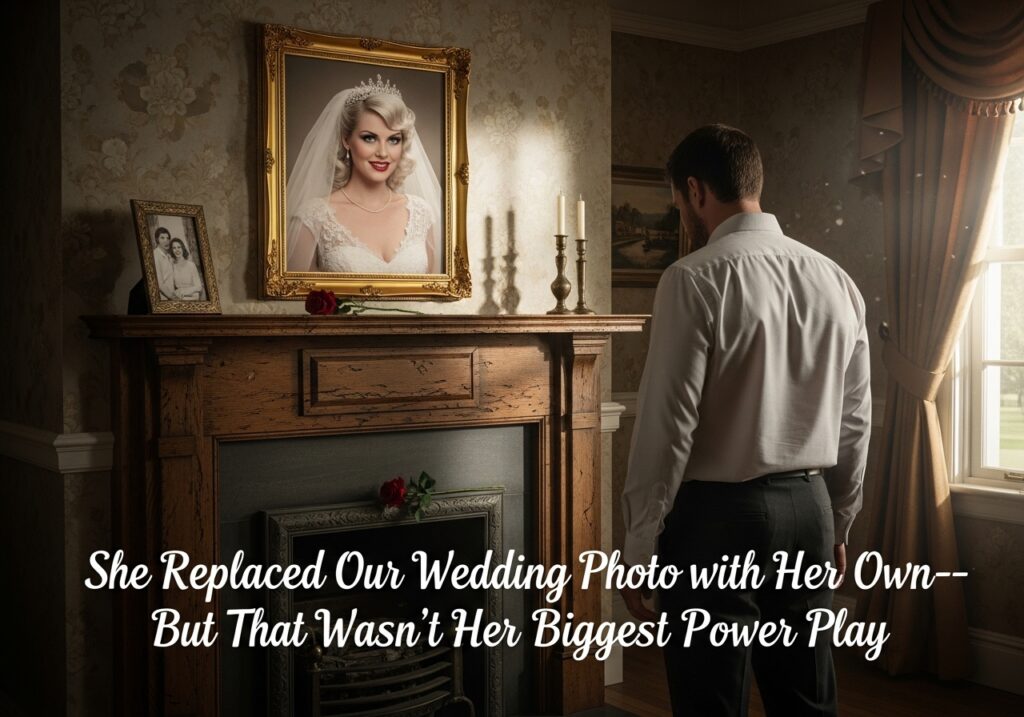When my mother-in-law moved in, I thought we were making space for family. What I didn’t realize was that I was also making space for a silent coup.
It started with small things. She rearranged the kitchen “for efficiency,” replaced our throw pillows with ones she brought from her old house, and insisted on cooking dinner every night—whether we wanted her to or not. I told myself it was temporary. That she was adjusting. That I could be patient.
Then one morning, I walked into the living room and froze.
Our wedding photo—the one that had hung above the fireplace since the day we moved in—was gone. In its place was a sepia-toned portrait of her and my husband as a child. No explanation. No conversation. Just a quiet erasure of our story.
When I asked about it, she smiled and said, “This house needs a real legacy on display.”
I laughed, thinking it was a joke. It wasn’t.

She began referring to herself as “the real boss” of the house. She’d interrupt our conversations, override our parenting decisions, and speak over me at family gatherings. She told my husband how to dress, what to eat, and how to discipline our children. And he—torn between loyalty and discomfort—said little.
I felt invisible. Like a guest in my own home. Like my marriage was being rewritten, one passive-aggressive move at a time.
But her biggest power play wasn’t the photo. It was the way she weaponized tradition, guilt, and silence.
She’d say things like, “In my day, wives didn’t talk back,” or “You should be grateful I’m here to help.” She’d cry when confronted, turning every boundary into an accusation of cruelty. And slowly, I began to doubt myself. Was I being too harsh? Too sensitive? Too modern?
Then came the breaking point.
One evening, I overheard her telling my daughter, “You don’t need to listen to your mom. Grandma knows best.” My daughter looked confused. I felt rage rise in my throat—but I didn’t yell.
I waited until the kids were asleep. Then I sat down with my husband and said, “This isn’t about your mother. It’s about us. About whether we’re building a life together—or letting someone else dismantle it.”
He listened. Really listened. And for the first time, he saw what I’d been carrying.
We set boundaries. We reclaimed our space. The wedding photo went back up. The kitchen was ours again. And while his mother still lived with us, she no longer ruled us.
It wasn’t easy. She resisted. She sulked. She tried to guilt us. But we held firm.

Because the biggest power play wasn’t hers—it was ours. The decision to choose our marriage, our voice, and our future over inherited silence.
Now, when I walk into the living room and see our photo, I don’t just see a wedding. I see a war quietly won. A love reclaimed. A home restored.
And I remember: sometimes the strongest resistance isn’t loud. It’s steady. It’s clear. It’s the refusal to disappear.

